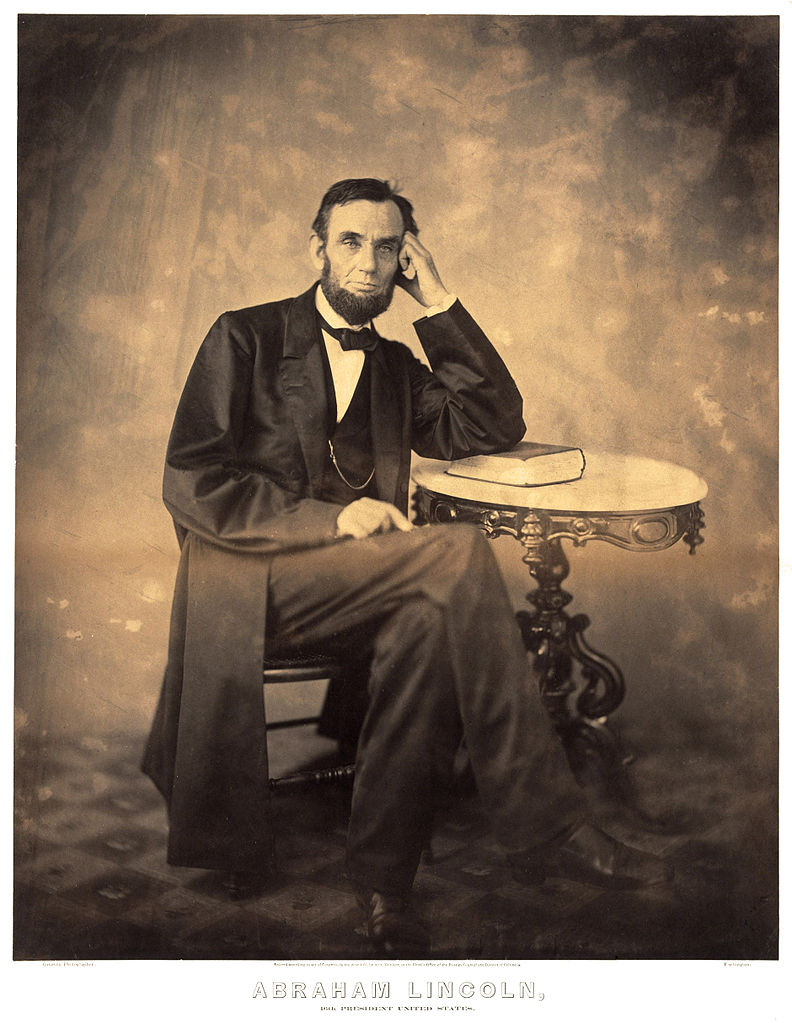“… our Fathers brought forth, upon this continent, a new nation, conceived in Liberty, and dedicated to the proposition that all men are created equal…”
Thus, in the first line of the Gettysburg Address, his most celebrated speech, Abraham Lincoln recognizes that the birth of freedom of the United States owes its allegiance to the ideas espoused in the Declaration of Independence, that all men are created equal; no man can claim a higher position than any other by birthright, that a government “of the people, by the people” and “for the people” is only possible when we recognize the supreme authority and power of a Creator from which our rights spring: unalienable, self-evident and eternal. This is the power of the United States; this is our birthright.
We can improve upon these ideas by exploring more deeply that relationship between our Creator and ourselves; certainly, the Founding Fathers made no claim to unique divine inspiration; but we cannot ignore these ideas without losing that which makes America great: a deep, abiding respect for the individual, rising out of our position as divinely created beings. Who would want to deny this? What American would feel oppressed by such a concept? Does this concept deny freedom of religion? Does it abrogate the First Amendment? Of course not; on the contrary, it is the very basis, the very root of all our rights. We must understand this.
Abraham Lincoln understood this. In 1858, he told a crowd in Lewiston, Illinois: “Return to the fountain whose waters spring close by the blood of the revolution. Think nothing of me; take no thought for the political fate of any man whomsoever; but come back to the truths that are in the Declaration of Independence. You may do anything with me you choose, if you will but heed these sacred principles.” [1]
He continued: “[the] Fathers of the Republic have… said to the whole world of men: ‘We hold these truths to be self evident: that all men are created equal; that they are endowed by their Creator with certain unalienable rights; that among these are life, liberty and the pursuit of happiness.’ This was their majestic interpretation of the economy of the Universe. This was their lofty, and wise, and noble understanding of the justice of the Creator to His creatures… to the whole great family of man. In their enlightened belief, nothing stamped with the Divine image and likeness was sent into the world to be trodden on, and degraded, and imbruted by its fellows.” [2]
Lincoln’s vision and hope for this country sprang from the Declaration of Independence. Again and again he referred to it, drew strength from it, honored it. His impassioned fight against the evils of slavery found inspiration in it. In an address at Independence Hall in February 1861, he said: “I have never had a feeling politically that did not spring from the sentiments embodied in the Declaration of Independence.” [3]
Just as the impetus for women’s suffrage and women’s rights drew its strength from the Declaration of Independence, leading to the Seneca Falls Declaration of Sentiments and Resolutions of 1848, which finally led to women’s suffrage through the passing of the 19th Amendment in 1920, the end of slavery in the United States was based upon the self-evident truths found in the Declaration of Independence.
It is time now for another amendment to the U.S. Constitution, to bring the Declaration of Independence onto center stage, to give it the constitutional authority and stature it deserves, as the Preamble or Vision Statement of the Constitution, as its legal and historical root. It is time to “return to the fountain whose waters spring close by the blood of the revolution,” and prevent the Declaration of Independence from being treated as a relic of history, by binding it to and within the U.S. Constitution.
[1] Roy P. Basler, editor, The Collected Works of Abraham Lincoln, Volume III, (Speech at Lewiston, August 17, 1858). Taken from: “Mr. Lincoln and the Founders”, http://www.mrlincolnandthefounders.org/inside.asp?ID=1
[2] Ibid, pp. 544-546.
[3] “Address at Independence Hall”, quoted from: Abraham Lincoln Online, http://www.abrahamlincolnonline.org/lincoln/speeches/quotes.htm

